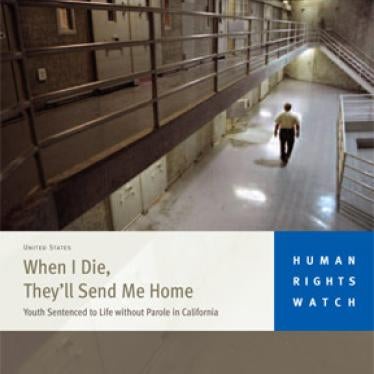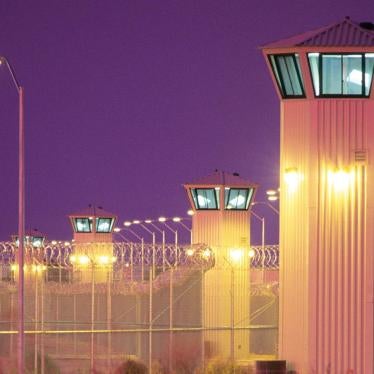California Governor Jerry Brown signed into law on September 16, 2013, a bill that offers hope and a meaningful opportunity of parole for some 5,000 youth offenders in the state, Human Rights Watch said today.
Senate Bill 260 (SB 260) (Hancock) will create a parole process that takes into account the age of an offender at the time the crime was committed, if the person was under 18. The process will also consider subsequent rehabilitation as a key factor in determining suitability for parole. The new law requires the board of parole hearings to give a “meaningful opportunity” of parole to youths sentenced to adult prison terms.
“This youth parole law is about the fundamental human need for hope,” said Elizabeth Calvin, senior child rights advocate at Human Rights Watch. “California has been imprisoning teens and forgetting about them. This new law offers young people an incentive to work hard for the possibility of parole.”
California sentenced many youths to adult prison terms, even when the person was under 18 at the time of the crime. More than 6,500 youth offenders who were sentenced to adult prison terms are currently in California state prisons. Some were as young as 14 when the crime was committed and approximately half are serving life sentences. Of the total, about 5,000 are likely to be eligible for relief under SB 260.
Under existing California law, there was no process for authorities to assess whether someone who was under 18 at the time of a crime had grown and matured and merited an earlier chance at parole. The new law will provide review for youths who were convicted as adults and who have served at least 15 years. It will apply to those already convicted as well as youths convicted in the future.
Governor Brown cited SB 260 as evidence of the state’s efforts to reduce prison crowding. In pleadings to the three-judge panel that ordered the state to reduce prison overcrowding, Brown asked for more time to allow the state to build on the criminal justice reforms it has begun, and listed SB 260 as an example of “historic reforms demonstrat[ing] the State’s clear commitment to… developing lasting, balanced, and cost-effective solutions for California’s prisons.”
“The youth parole law can help reduce prison overcrowding by providing a thoughtful process for review and possible parole for youth offenders,” Calvin said. “California has taken a real step toward recognizing that children who commit crimes are different from adults.”
SB 260 was proposed after three US Supreme Court cases recognized the centrality of developmental differences between adults and children in sentencing, Human Rights Watch said. The US Supreme Court stated that juvenile offenders “cannot with reliability be classified among the worst offenders” because they are more capable of change than are adults, and their actions are less likely to be evidence of “irretrievably depraved character.”
The California Supreme Court relied on these cases in an opinion in 2012 that found a 110-year sentence for a 16-year-old boy to be unconstitutionally “cruel and unusual.” The California high court invited the legislature to bring state laws into compliance with these rulings.
Since 2004, Human Rights Watch has researched the use of life sentences for people under 18 at the time of the crime, and in 2008 published a report on California’s use of life without parole sentences, with an update to the California research in 2012, along with a national report on prison conditions faced by youth sentenced to life without parole.
Human Rights Watch was the sponsor of SB 260, and co-sponsoring organizations were the University of Southern California’s School of Law Post Conviction Clinic, the Youth Law Center, Youth Justice Coalition, and Friends Committee on Legislation. Support for the bill’s passage was unusually diverse: faith communities, medical associations, human rights activists, and children’s rights groups joined with family members of victims, law enforcement, and many others. Noted conservatives also supported the bill, including Newt Gingrich, former speaker of the US House of Representatives, and Pat Nolan, former Republican leader of the California Assembly.
“Extremely long prison sentences create despair for young people,” Calvin said. “When young people enter prison with a sentence that is three, four, or more times their current age, they can feel like giving up. This new law will provide careful review of these youths as they grow up, and a real chance at parole.”







